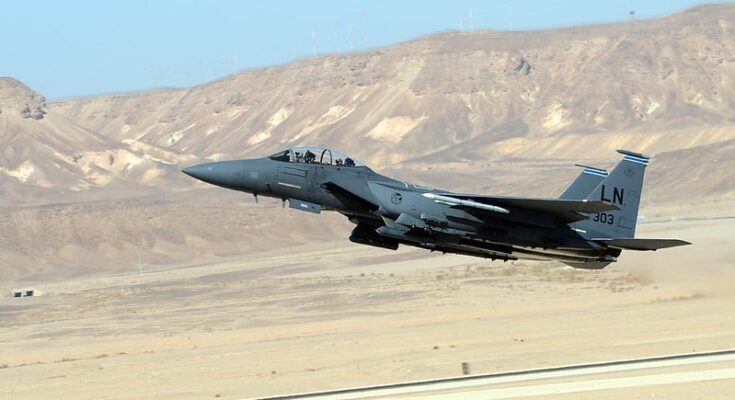Israel launched airstrikes on Tuesday afternoon targeting Hezbollah officials in Beirut, the capital city of Lebanon.
In yet another significant and dramatic escalation of the Middle Eastern tensions, Israeli airstrikes targeted parts of southern Beirut, areas believed to be chosen because of potential links to the Islamic group Hezbollah.
Lebanon’s state news agency NNA reported that at least one person died as a result of the attack, with more individuals being reported wounded and rushed to nearby hospitals.
This latest war move on behalf of Israel comes only days after a rocket attack on the Israeli-occupied area of Golan Heights. During this attack, 12 people lost their lives and 35 others were injured.
Israel’s attack against Hezbollah not unexpected
Media reports from around the world report that the primary target of the airstrikes was Fuad Shukr, a senior Hezbollah commander and close advisor to the leader of the Islamist group, Hassan Nasrallah. However, independent observers have not yet verified this.
Conflicting reports have also emerged regarding Shukr’s fate, with many media outlets reporting the chief is dead. However, this has not yet been verified by either side. The Israeli attacks caused massive explosions and extensive damage in civilian areas of the Lebanese capital, sparking outrage among the Arab world and beyond.
The attack, as is understood, led to widespread panic among Beirut residents who did not know what to expect next. The main airport of Beirut saw many flight cancelations and delays. For quite some time, it was not clear if this was a targeted attack or a more widespread operation of the Israelis.
These fresh airstrikes have already caused an uproar not just among Hezbollah members and supporters but also among the broader Lebanese public. Large crowds have already gathered in Beirut, demanding revenge against the Israelis who launched the attack and expressing their support for Hezbollah. The militant group has vowed many times to retaliate against any form of action of what it describes as Israeli aggression in the broader region.

Meanwhile in Israel, Defense Minister Yoav Gallant issued a statement on X (formerly known as Twitter) in which he justified the airstrikes. Gallant said that Hezbollah had “crossed the red line” with the rocket attack on Golan Heights a few days ago. Israeli officials expressed the opinion recently that an attack on Lebanon would be a necessary response to protect Israeli citizens and maintain regional security.
Hezbollah recently threatened Cyprus
Earlier in June, Hassan Nasrallah, the leader of the militant Lebanese group, issued a distressing message against Cyprus. The Islamist leader warned the Mediterranean country that if it allowed Israel and its armed forces to use the military infrastructure of the island to target Hezbollah and launch operations from within Cyprus, this would be considered an act of war.
Greece, the EU, and the US had condemned these remarks from Hezbollah. Athens expressed its solidarity with the “brother people” of Cyprus, saying that “the threat to use force constitutes a flagrant violation of the Charter of the United Nations.”
It has to be noted that Cyprus and Israel have a strong friendly relationship that involves many areas of the economy and the military of both nations.



